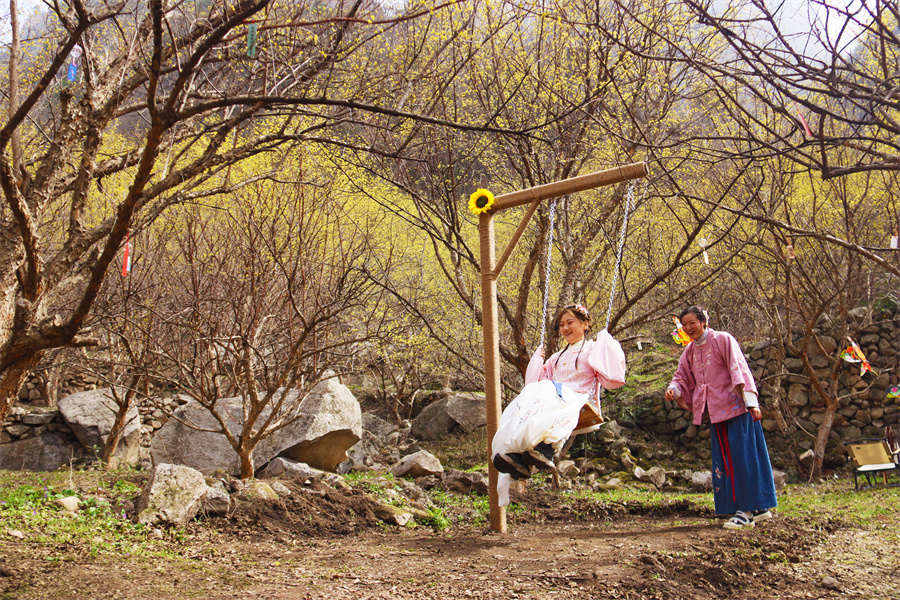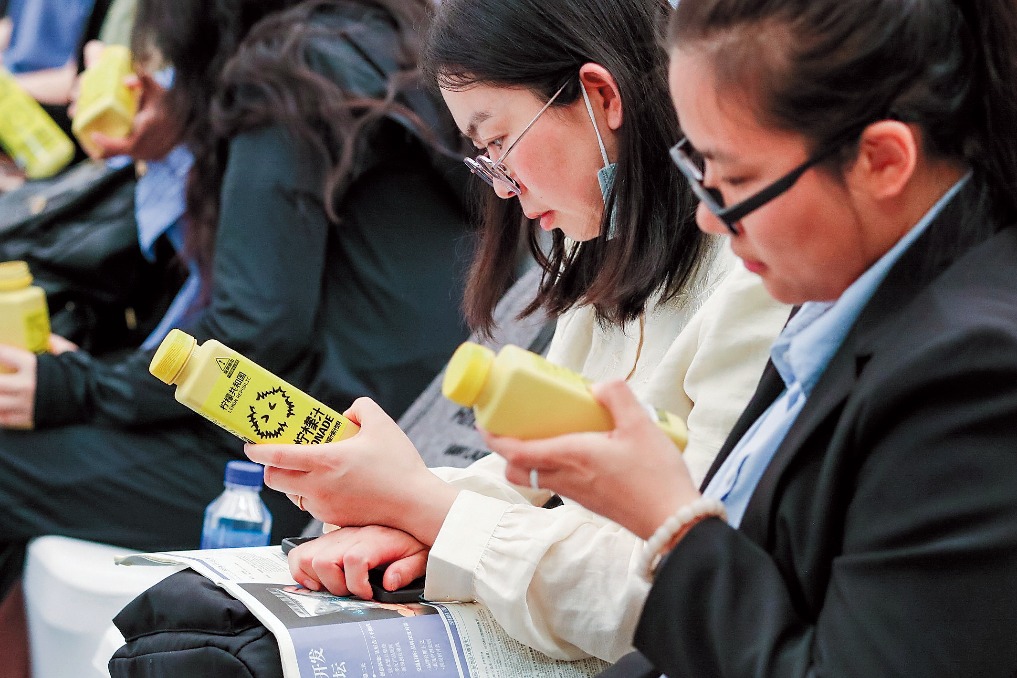Cold storage proves a tonic for Henan's crimson berries


One afternoon last month, as workers at Linshuo Traditional Chinese Medicine Specialized Cooperative meticulously went through the process of peeling, pitting, sorting and sun-drying fresh Cornus officinalis berries (also known as Japanese cornelian cherries), the sight appeared unusual for mid-summer as the fruit is usually ripe for harvest in fall.
The fact is, the berries were not freshly picked but freshly retrieved from their refrigerated sanctuary, an effort intensified by growers in Miping town in Xixia county, Henan province, to better sustain the area's specialized pharmaceutical industry.
Cornus officinalis is widely used in traditional Chinese medicine, or TCM, as a tonic and has been recognized for its beneficial pharmacological effects on the reproductive system.
With a rich history of cultivation, Xixia is known as the "Hometown of Cornus officinalis" and a national production base. Nestled at altitudes between 600 meters and 1,200 meters, Xixia's berries are famed for their vivid red color, large size, thick flesh and potent medicinal properties.
Late autumn and early winter usually herald the fruit's harvest season, when growers would de-seed and dry the freshly picked berries and ready them for the market. However, the peak harvest season often sees a glut and drives prices down, so staggered sales can significantly boost profits, said Qiao Siqing, the cold storage manager at the cooperative.
"Cold storage can help extend the shelf life of Cornus officinalis by over a year, effectively bypassing the price troughs of peak production," Qiao said, displaying a handful of refrigerated plump crimson berries that looked as if they had just been picked.
The Cornus officinalis stored in refrigerated warehouses is of much better quality than those kept outdoors over winter, fetching an additional 6,000 yuan ($830) per metric ton, he said.
As a result, the cooperative has invested over 20 million yuan in the construction of a state-of-the-art integrated cold storage facility, which boasts a capacity of 6,000 cubic meters and can house 1,500 tons of herbal medicines.
"The strategic move has lengthened and solidified the industrial chain for Cornus officinalis cultivation, fostering a modern industry model that seamlessly integrates planting, processing, transportation, freezing and sales," Qiao said.
In this regard, the local power supplier has also undertaken a comprehensive upgrade to support cold storage with improved electrical infrastructure. It has revamped 10-kilovolt lines, regularly dispatched experts for on-site inspections and offered guidance on the scientific use of electrical equipment, eliminating potential hazards and ensuring safe, standardized electricity usage, said State Grid Xixia County Power Supply Co.
Currently, Xixia's embrace of Cornus officinalis cultivation spans more than 200,000 mu (13,333 hectares), with an annual production of over 4,000 tons, accounting for nearly 50 percent of the national output.
As a major production base for herbal medicines in the country, Xixia has also developed a full-chain industry system that strategically positions TCM as a cornerstone for specialized rural development.
Take Miping town, for example. Its medicinal plant cultivation area spanned 60,000 mu last year. It boasts an annual output value of over 1 billion yuan. It is now home to two large-scale TCM processing enterprises, one small-scale decoction processing factory and 37 professional cooperatives, solidifying its status as a veritable "herbal town".
In addition, local growers are also weaving themselves into the herbal medicine industry fabric, leveraging this sector to chart their paths to prosperity.
Seventy percent of Miping's farmers are engaged in herbal medicine production, with per capita income rising by over 5,000 yuan, according to data from the Xixia county government.
"I've planted over 800 Cornus officinalis trees, yielding about 1,000 kilograms of dried berries after processing. This year, I can sell them for over 60,000 yuan," said Zhou Jinwei, a grower from Dazhuang village of Miping town.
Xixia has developed over 300,000 mu of more than 20 types of herbs used in making TCM, including Cornus officinalis, forsythia, and yellow ginger. The county now yields an annual production of over 60,000 tons, with an output value of nearly 500 million yuan, according to local government data.





































